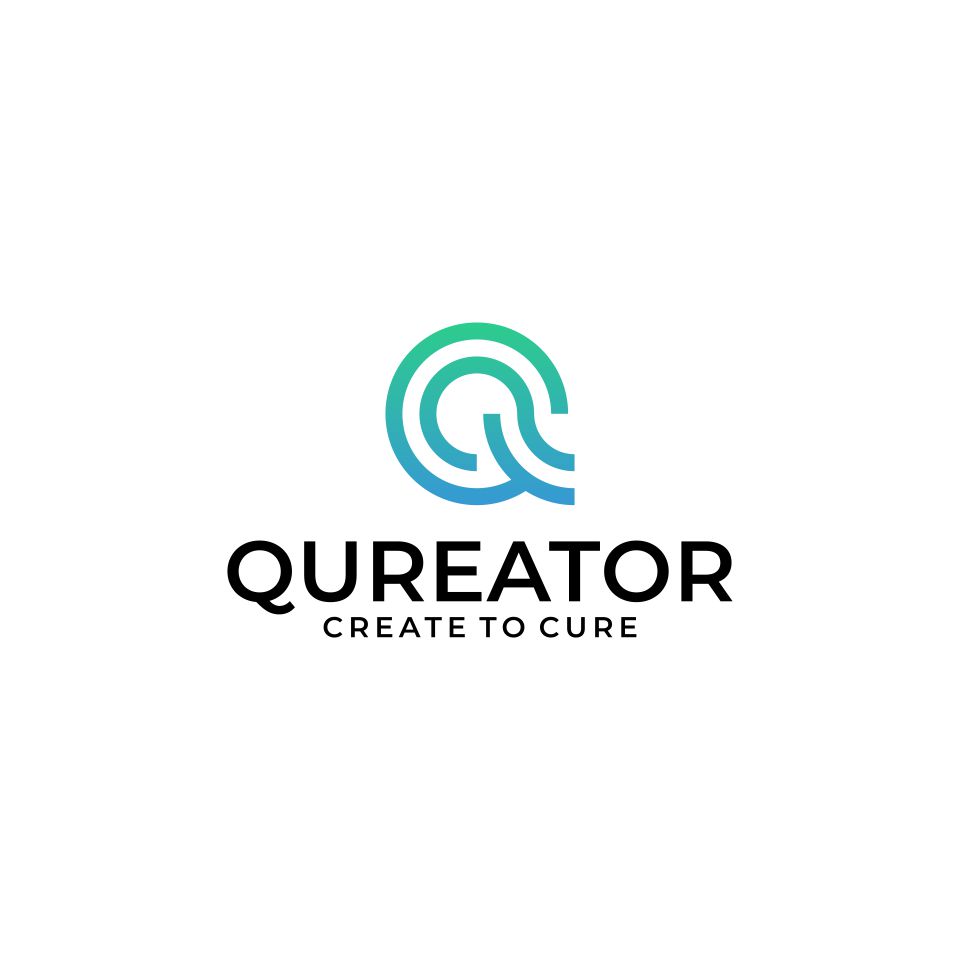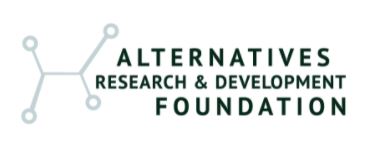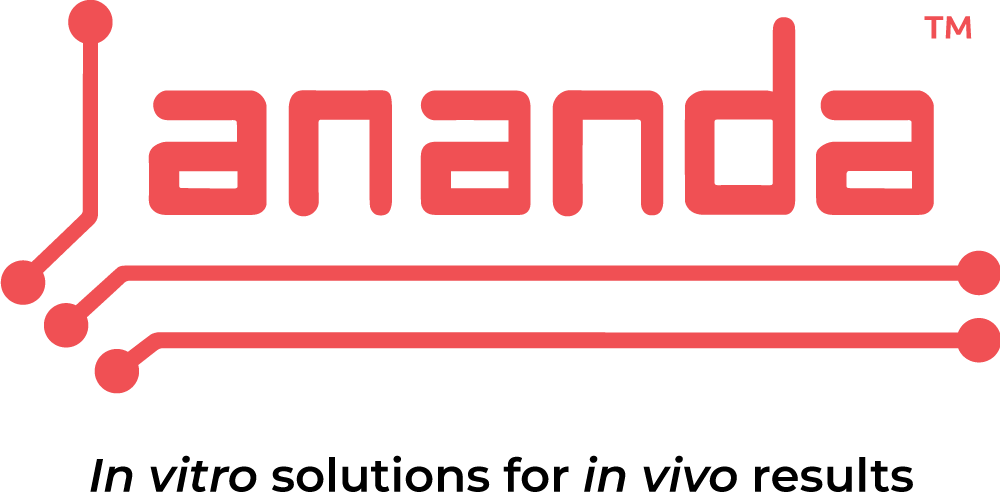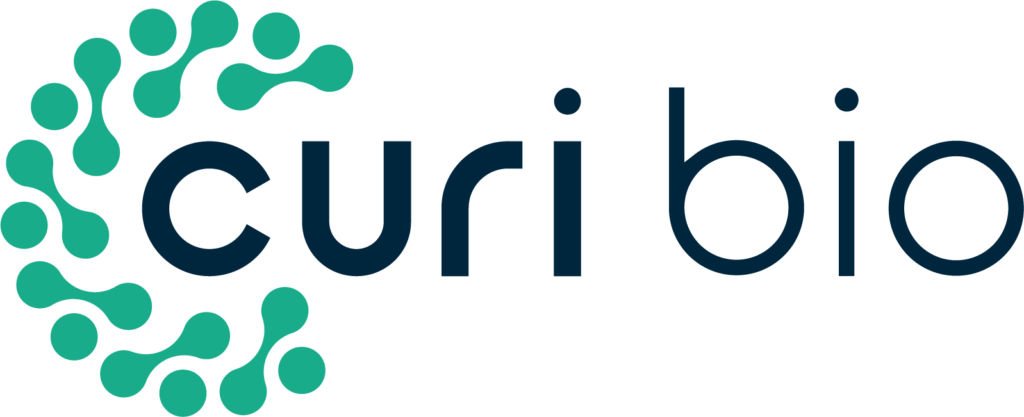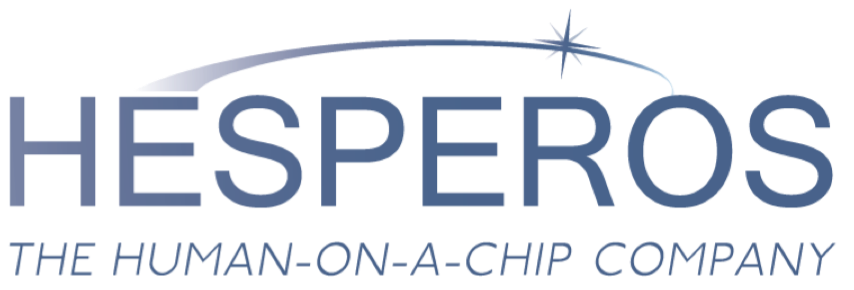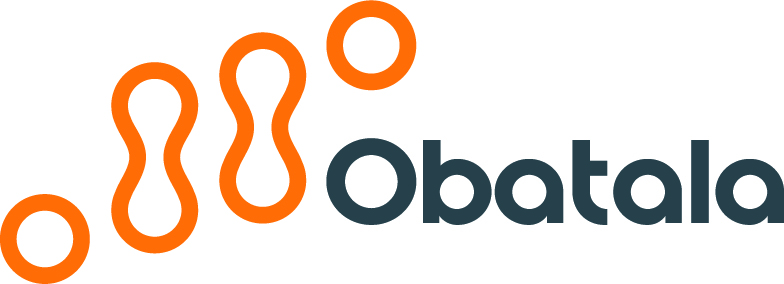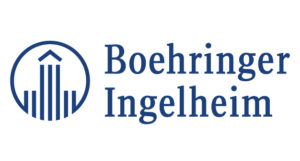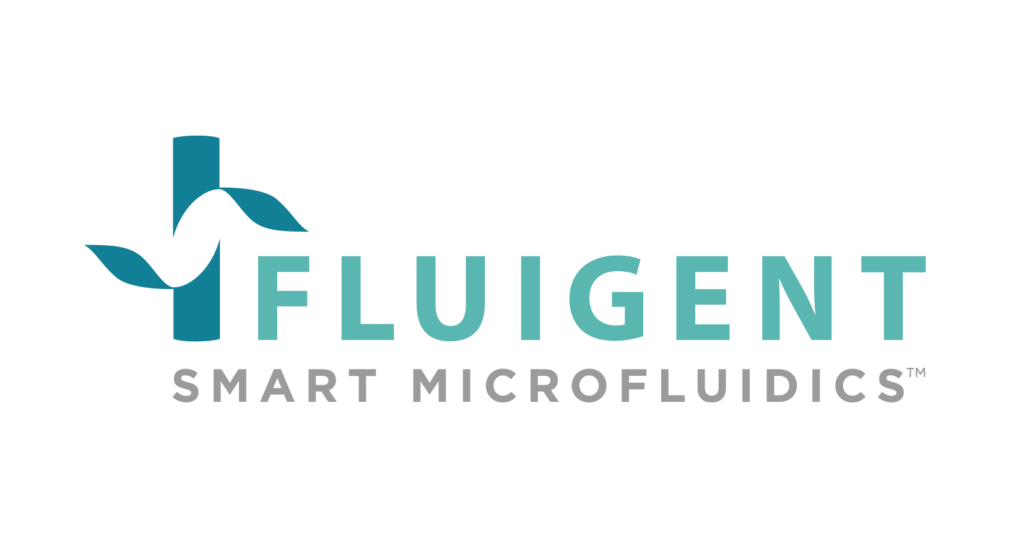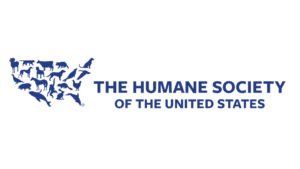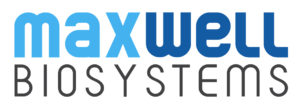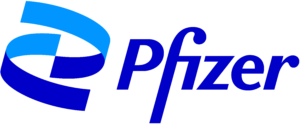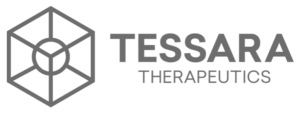Gold Sponsors
Emulate develops a breadth of Organ-on-a-Chip models with a focus on recreating the microenvironment and mechanical forces cells experience in vivo. Hardware automating media flow and stretch, Bio-Kits including chips and qualified human cells, and a range of standard and custom services are available.
Qureator Inc., a biotech company, focuses on the development of high-throughput platforms for novel disease models in areas of high unmet medical needs. The company utilizes its unique Microphysiological Systems (MPS) known as Curiochips which enable our investigators to perform co-cultures with multiple cell types in 3D making possible high-throughput screenings for biomedical research and drug discovery. Qureator is also developing a variety of patient-derived in vitro models in organs-on-chips which closely recapitulate the pathophysiology of diseases and can be efficiently applicable to target identification as well as compound screening. Qureator has expertise in the areas of fibrosis, oncology, angiogenesis/vasculogenesis as well as ocular disease. The company has multiple collaborations with pharmaceutical companies, research institutes, and hospitals for assay development, safety evaluation, and drug discovery. Conventional preclinical testing has faced challenges in that results from in vitro studies often do not correctly reflect or anticipate the effect a drug or compound will have on the human body. This results in a significantly increased amount of time and cost for the overall drug discovery process. Qureator aims to develop a more robust drug discovery process thereby reducing cost and time through the development of highly relevant physiological disease models.
Silver Sponsors
Since 1993, the Alternatives Research & Development Foundation has been a leader in funding new ways to find answers to important scientific questions. We have awarded over $3.5 million in grants to support projects with high scientific merit and the greatest potential to replace and reduce animals. We are proud to be a part of a field of science that is not only exciting and cutting-edge, but holds promise to advance society’s positive values.
ARDF also advances Alternatives research through achievement awards and sponsorship of scientific conferences. Focused on exploring non-animal methods and models, ARDF works constructively with partners in the science community to bring alternatives technology and compassion to modern biomedical research, product testing, and classroom laboratories.
ARDF believes it is worth investing in new Alternative methods in science because they represent progress for people and animals. Innovations in biology and technology have already made it possible to achieve breakthroughs, but there is much more work to do.
ARDF appreciates working with partners to support our mission, which is to fund and promote the development, validation, and adoption of non-animal methods. More info: www.ardf-online.org; contact: [email protected].
Ananda Devices is a organ on-a-chip technology company specialized in high throughput nervous system assay developments. Ananda leverages their proprietary nano-organization technology, and has developed human physiologically relevant disease models such as Parkinsons, Alzheimers and ALS that generate robust and predicative responses early on in the compound development processes. This helps accelerate compound discovery and de-risk key developmental investments.
AxoSim empowers advancements in human neuroscience by partnering with leading pharmaceutical and research institutions to facilitate therapeutic breakthroughs in the world’s most devastating neurodegenerative diseases.
The NerveSim® platform is the only in vitro model with Schwann cell myelination and human-relevant electrophysiological and structural data metrics, unlocking a powerful tool for human translation.
The BrainSim® platform is being developed to upend the way drugs are screened for myelin-related diseases of the CNS, such as multiple sclerosis and leukodystrophies. With innovative drug discovery tools, AxoSim offers clinically-relevant data to select better lead candidates with functional, phenotypically accurate assays. AxoSim enables its partners to move safe and effective candidates toward the clinic faster than it has been done before.
The BioSystics vision is to provide a “Patient Digital Twins” platform for the advancement of precision medicine. The concept of patient digital twins is derived from digital twins used in industry. Patient digital twins involves the creation of computational models of patients from clinical and patient-derived microphysiology systems data. Our BioSystics Analytics Platform (BioSystics-AP) captures, manages, analyzes, shares, and computationally models complex data sets from in vitro experimental models, animal studies, and human clinical data, creating actionable knowledge and predicting biological outcomes that optimizes precision medicine, including preclinical trials. The BioSystics-AP is also valuable for cosmetic, industrial and environmental chemical testing. Links to internal and external databases provide information on drugs, assays, preclinical and clinical data for model and study design, and to develop computational models. The BioSystics-AP provides a streamlined workflow for selecting in vitro models, implementing studies and capturing data in a central location for efficient review, analyses and computational modeling. The BioSystics-AP facilitates secure data sharing within a lab and organization, with collaborators, government agencies, and the research community. There are two versions of the platform: a publicly accessible for non-profits, and a commercial version for installation and integration within the corporate infrastructure, which being beta-tested.
CN Bio is a leading organ-on-a-chip (OOC) company that offers a portfolio of products and services to optimise the accuracy and efficiency of bringing new medicines to market; providing significant savings to drug discovery and development. With over a decade of R&D experience in multi-organ microphysiology, we aim to transform the way human-relevant pre-clinical data is generated through the development of the most complete model of the human “Body-on-a-Chip” in the laboratory.
Our range of PhysioMimix™ microphysiological systems (MPS), 3D validated cells and consumable plates enable researchers to model human biology in vitro through rapid and predictive 3D tissue-based studies that harness microfluidic technology to provide nutrients and mimic blood flow. PhysioMimix bridges the gap between traditional cell culture and human studies, advancing towards the simulation of human biological conditions to support the accelerated development of new therapeutics, whilst reducing dependence on animals. CN Bio’s MPS support researchers that require reliable, data-rich studies, to uncover novel mechanistic insights into a broad range of biological processes across healthy and diseased cell-types, in addition to identifying novel therapeutic targets, investigating drug efficacy, pharmacokinetics and toxicity. The technology has been successfully adopted by pharma, biotech, academia, and the US FDA.
Curi Bio provides innovative human stem cell maturation platforms and services for cell and tissue engineering, disease modeling, and fundamental cell biology research. Using a variety of bioengineering techniques to mimic the signals cells normally receive in the body, NanoSurface™, Cytostretcher™, Mantarray™ (3D tissue), Nautilus™, and Pulse™ technologies help advance stem cell maturity. These more developed and physiologically representative tissues can better predict how medicines will affect the human body. This enables pharmaceutical companies to access more predictive, human-relevant data at the earliest stages of drug development, potentially saving billions in developmental costs.
Hesperos, Inc. is a global contract research organization (CRO) providing compound safety and efficacy testing services using its Human-on-a-Chip® platform – the most advanced, multi-organ microphysiological systems available today.
Composed of human cells, the flexible platform can be configured to include select organs and barrier tissues depending on the application, such as: reproducing (and treating) specific disease states, evaluating various drug delivery methods (IV, oral, topical), and investigating the acute and chronic effects of both single and multi-drug treatments (for parent compounds and metabolites).
Efficacy data produced by a Hesperos system for a rare disease was included in an IND filed with Sanofi in December 2020 enabling a Phase II clinical trial that began enrolling patients in April 2021 (#NCT04658472). This is the first time data was used from a microphysiological system which led to the authorization of a clinical trial using efficacy data for another indication marking a significant milestone in validating the technology. With multiple publications in top-tier, peer reviewed journals including: Nature Scientific Reports, Science Translational Medicine, and Advanced Therapeutics, Hesperos’ Human-on-a-Chip is being successfully used by pharmaceutical, cosmetic, and government entities to better understand specific disease states and the human response to therapeutics.
InSphero is the pioneer of industrial-grade, 3D-cell-based assay solutions and scaffold-free 3D organ-on-a-chip technology. Through partnerships, InSphero supports pharmaceutical and biotechnology researchers in successful decision-making by accurately rebuilding the human physiology in vitro. Its robust and precisely engineered suite of 3D InSight™ human tissue platforms are used by major pharmaceutical companies worldwide to increase efficiency in drug discovery and safety testing. The company specializes in liver toxicology, metabolic diseases (e.g., T1 & T2 diabetes and NAFLD & NASH liver disease), and oncology (with a focus on immuno-oncology and PDX models). The scalable Akura™ technology underlying the company’s 3D InSight™ Discovery and Safety Platforms includes 96 and 384-well plate formats and the Akura™ Flow organ-on-a-chip system to drive efficient innovation throughout all phases of drug development.
NETRI is an industrial start-up developing innovative technologies for the pharmaceutical industry. Its patented organ-on-chip technologies allow the creation of standardized and predictive human in vitro models. This allows to anticipate the efficacy of an innovative treatment, to accelerate preclinical research phases, and to reposition compounds on new indications, while limiting animal testing. The use of human neural circuits coupled with multiple cell types opens the way to more personalized medicine as well as faster and more relevant diagnostics. Current application areas include neurological disorders, cosmetics and nutrition.
Our uniqueness lies in our ability to rapidly combine different blocks of technology in a single microfluidic chip:
– 3D deposition chamber to precisely control cell density, homogeneity and media change. Large formats allow seeding and growth of organoids.
– Microchannels to connect chambers for uni- or bidirectional neurite growth, while ensuring fluidic isolation.
– Integrated porous membranes to mimic interfaces (blood/brain, skin…).
– NeuroBento™ format matching 96-well microplate alignment for high-throughput screening and imaging on microscopes. No pump or mechanical shaker required.
– MEA compatibility to continuously record electrophysiological signals and whole network dynamics.
– Proprietary algorithms to extract most functional markers from the network. For more information: netri.fr/
The New Orleans Business Alliance (NOLABA) is the official Economic Development organization for the City of New Orleans, and we are tasked with improving the lives and livelihoods for New Orleanians by igniting economic growth for the business community and creating a healthier reality, filled with opportunities, for the residents of our great city.
We act upon our mission with a distinct focus on small business growth – where we create onramps for opportunity and access to resources necessary for small businesses to thrive; strategic neighborhood development, where we develop public and private investments for neighborhood and other development prospects; attraction of outside investment, and the retention and expansion of homegrown and existing New Orleans companies where we work in partnership with the corporate community to retain and expand existing commerce. One of fewer than 80 Accredited Economic Development Organizations worldwide, the New Orleans Business Alliance through a direct partnership with the City of New Orleans and strong connectivity with the business community, works to ensure the economic security of all New Orleanians. Through an inclusive economic development strategy, we will create a more equitable and prosperous future for all. Learn more at www.nolaba.org.
Newcells Biotech build functional in vitro cell models based on in vivo physiology to help ensure correct decision-making during drug development. Models are made using either primary or iPS cells from human and various animal species. Newcells models can be accessed via deliverable products or service projects to assess test articles. Kidney and retina models are available now with lung and liver in development.
The kidney primary cell model uses proximal tubule cells (PTC). It is used to elucidate transporter mechanisms of drug uptake and secretion as well as looking at safety or toxicology within the kidney. The PTC model is highly predictive of drug safety in clinical studies and expresses clinically validated biomarkers (including those recommended by the FDA). It is suitable for high throughput screening (HTS) unlike other microphysiological systems. Glomerulus and fibrosis models are also in development. The retina cell model uses iPSCs and is the only commercially available in vitro model that recapitulates the complexity of the retina. It is suitable for HTS and predictive of in vivo outcomes. Safety evaluation can be assessed on the standard model made from a healthy donor and drugs can be assessed on models from individuals with retinopathies.
Obatala Sciences™ is a biotechnology toolkit company providing products and services to researchers in academia and industry that are developing new treatments for obesity, diabetes, and some cancers. Obatala® has developed the ObaCell® Adipose On-a-Chip Microphysiological System for drug discovery, which allows for better mimicry of human adipose tissue than traditional animal or 2D cell culture models. The ObaCell MPS consists of in-house isolated adipose-derived stem cells, in-house manufactured cell culture media, and Obatala’s proprietary human-derived hydrogel, ObaGel®. The components are available individually, as a kit of reagents and cells, or as a fully differentiated live 96-well plate of adipose organoids. Obatala can also provide contract research services on the ObaCell system including growth, toxicity, and dose response studies; lead candidate selection; genomics, proteomics, and transciptomics; and studies of specific demographics enabled by the demographic diversity of Obatala’s cell inventory. In addition to ObaGel’s application in ObaCell, it can be used in other microphysiological systems, including tumor organoids, and in some in vivo models, such as implanting adipose organoids. Obatala is continuing to develop new hydrogels for various applications and new MPS models, including a hypertrophy and an islet microphysiological system.
The Roche Institute for Translational Bioengineering was established to harness and advance the use of human model systems in drug discovery and development, as well as personalised medicine. With close ties to academia and Roche Pharmaceutical Research and Early Development (pRED), we are uniquely positioned to unlock organoids’ transformative potential for the benefit of patients. Broad adoption of organoids in pharmaceutical R&D and clinical practice requires a paradigm shift across the entire value chain, including academia, industry, clinicians, regulators, and payers. This is why we aim to bring together all these stakeholders to advance translational research and personalised medicine. Our interdisciplinary research teams are uniquely positioned to unlock organoids’ transformative potential for drug discovery, development, and patient care.
VitroScreen is committed to in Vitro Science since 2001 proposing in Vitro approaches on 3D human tissues. We are proud to introduce VitroScreen’s ORAÒ platform as state of the art pre-clinical services to Life Sciences companies.
VitroScreen ORA® are human, biomimetic and functional MPS developed to mirror the rhythm of life in physiological and disease state as fit for purpose models for Pharmaceutical and Nutritional industries in the following areas of health: Dermatology, Urology, Gynaecology, Orthopaedics, Gastroenterology, Ophthalmology, Vascular and Immuno Systems.
VitroScreen ORA® are engineered scaffold-free spheroids on 96 well precisely designed in their natural microscale 3D architecture: each VitroScreen ORA® spheroid produces its own micro-environment and functions as a miniaturized organ where ECM deposition, organization and metabolism occurs physiological slowly, relying on cell-matrix interaction, mirroring phenotypic characteristic of the donor’s cells.
VitroScreen ORA®: a testing platform providing full pre-clinical services by quantitative gene and protein expression using NanoString® digital molecular barcoding technologies, allowing for both supervised and unsupervised data analysis of high content -omics datasets, as well as high content imaging on whole mount 3D live tissues. We accept the challenge to develop together with our partners advanced MPS technologies for basic and applied research and for personalized therapies.
Bronze Sponsors
The journal ALTEX – Alternatives to Animal Experimentation publishes open access academic articles on the development and implementation of alternatives to the use of animals for scientific purposes and informs on international developments in this field. ALTEX is the official organ of CAAT, CAAT-Europe, the Doerenkamp-Zbinden Chairs, EUSAAT and t4. ALTEX is owned and issued by the society ALTEX Edition along with the journals ALTEX Proceedings and TIERethik.
Altis has developed a patented stem cell technology recreating the human intestinal epithelium for compound screening and microbiome research. The product is called RepliGut. It will allow drugs to be tested on an in vitro platform that more closely mimics native human biology. Our goal is to enable pharmaceutical companies to identify effective compounds earlier, before clinical trials; to reduce animal testing; and to make the drug development process faster, cheaper, and safer.
Boehringer Ingelheim is working on breakthrough therapies that transform lives, today and for generations to come. As a leading research-driven biopharmaceutical company, the company creates value through innovation in areas of high unmet medical need. Founded in 1885 and family-owned ever since, Boehringer Ingelheim takes a long-term perspective. More than 52,000 employees serve over 130 markets in the three business areas, Human Pharma, Animal Health, and Biopharmaceutical Contract Manufacturing. Learn more at www.boehringer-ingelheim.com.
At EMD Serono, the healthcare business of Merck KGaA, Darmstadt, Germany in the U.S., we aspire to create, improve and prolong life for people living with difficult-to-treat conditions like infertility, multiple sclerosis and cancer. Our people are courageous about advancing new science and passionate about delivering programs that make an impact on our communities.
Fluigent is an international company which develops, manufactures and supports the most advanced fluid control systems available for microfluidics. Whether your application is with droplets, cell biology, particle studies, or in other research areas, we have the expertise and knowledge to provide the most cost-effective and technically advanced solutions for your fluid control needs.
Our innovative tools are compatible with lab on a chip devices and a wide variety of microfluidic technologies.
The Humane Society of the United States is working to decrease and eventually end the use of animals for harmful research and testing through public policy, corporate outreach, and public engagement. Our priorities are expanding the development and regulatory acceptance of new approach methods, eliminating cosmetics testing on animals through our Be Cruelty Free campaign, ending the use of dogs for testing, and ensuring retirement of chimpanzees from laboratories to sanctuaries as soon as possible.
Lonza is a trusted provider of ethically sourced primary human cells offering over 100 different cell types from more than 13 organ systems. Cryopreserved primary cells from Lonza are produced using robust processes which are followed by rigorous QC to authenticate cell identity and purity, thus providing a solid backbone to build complex cellular models with consistent performance.
MaxWell Biosystems is a technology leader providing instrumentation and solutions to boost scientific research in neurosciences and stem cell / tissue engineering, enhance the efficiency of functional assays for toxicity and safety pharmacology, and accelerate drug discovery. The company’s advanced high-density microelectrode array (HD-MEA) platforms equip scientists to record electrical signals of neurons in in-vitro 2D and 3D models at unprecedented detail—from sub-cellular to single cells, up to full networks.
microfluidic ChipShop is one of the leaders in Lab-on-a-Chip and Organ-on-Chip product development and manufacturing. The company provides both off-the-shelf microfluidic consumables and custom OEM solutions. A unique feature of the company is its Lab-on-a-Chip catalogue, which includes an extensive portfolio of standard microfluidic components and systems, providing cost-effective and rapid access to lab-on-a-chip technologies. microfluidic ChipShop offers complete system (microfluidic consumable, instrument and assay) development and manufacturing in an ISO 13485 environment.
Pfizer is one of the world’s premier biopharmaceutical companies, that brings therapies to people to extend and significantly improve their lives. At Pfizer, we strive to set the standard for quality, safety, and value in the discovery, development, and manufacture of health care products.
Syngenta Crop Protection and Syngenta Seeds are part of Syngenta Group, a leading agriculture company. Our ambition is to help safely feed the world while taking care of the planet. We aim to improve the sustainability, quality and safety of agriculture with world class science and innovative crop solutions. Our technologies enable millions of farmers around the world to make better use of limited agricultural resources.
Learn more at www.syngenta.com, www.goodgrowthplan.com, www.twitter.com/Syngenta, and www.linkedin.com/company/syngenta
3D Tissue and Organ-on-Chip models from SynVivo enable real-time study of cell and drug interactions and accelerate discovery by providing a biologically realistic platform that more accurately depicts in vivo reality. Complex in vivo microvascular environment including scale, morphology, hemodynamics and cellular architecture are re-created in vitro. SynVivo’s proprietary microfluidic platform features side-by-side architecture enabling real-time visualization using standard instrumentation. Commercially available models include tumor, Blood Brain Barrier, Air Liquid Interface Lung, inflammation and Toxicology.
Accelerating Neural Drug Discovery
Tessara utilises the RealBrain® 3D human micro-tissue platform to accelerate neural drug discovery and regenerative medicine projects both in house and with our partners. RealBrain® is the first 3D human neural model to combine all the essential requirements for drug discovery, including heterogeneous and functional neural networks, compatibility with high-throughput automation in 96 and 384 wells, short generation time, and high optical clarity.
TissUse is a Berlin, Germany-based, biotechnology company, which has developed a unique “Multi-Organ-Chip” platform that provides preclinical insight on a systemic level using human tissues. This enabling technology platform consists of a miniaturized construct that closely simulates the activity of multiple human organs in their true physiological context. TissUse’s Multi-Organ-Chips provide a new approach to predict e.g. toxicity, ADME profiles and efficacy in vitro, reducing and replacing laboratory animal testing and streamlining human clinical trials.


